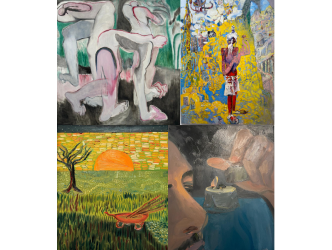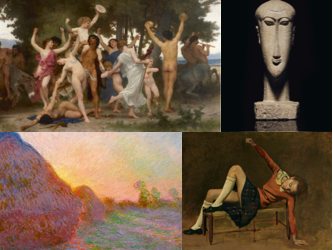Humanity’s greatest catastrophes
In 1959, Alain Resnais and Marguerite Duras released Hiroshima mon amour, a film punctuated like a refrain by the words of the Japanese hero who tells his French lover, “You saw nothing in Hiroshima.”
Beyond the fleeting romance that unfolds between them in a city marked by the indelible memory of 8:16 a.m. on August 6, 1945, when the atomic bomb dropped by the Americans detonated, this masterpiece confronts the profound difficulty of bearing witness to humanity’s greatest catastrophes.
Francis Bacon
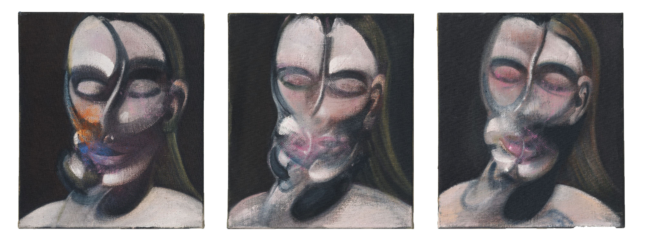
Francis Bacon
The film had an international impact to the point where Irish painter Francis Bacon, in one of his portraits of a woman in triptych, dated 1976, incorporated as a reference the serpentine lock of hair that crosses the forehead of actress Emmanuelle Riva in a famous scene of the movie.
Julia Garimorth
The painting is featured in the exhibition “L’age atomique: les artistes à l’épreuve de l’Histoire” (The Atomic Age: Artists in the Face of History) at Musée d’art moderne de Paris, until February 9, surrounded by over 250 works . As co-curator Julia Garimorth explains, “the exhibition offers a view of our atomic age, which began in 1945 and seemingly has no end”.
Japanese postwar artists
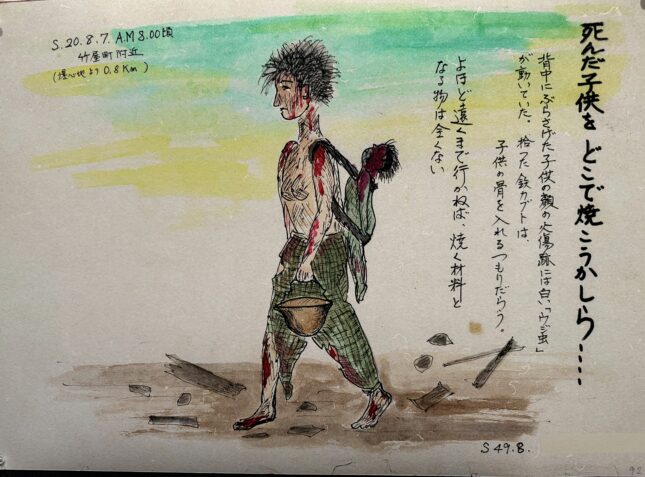
Kazuo Matsumoro
The exhibit is overwhelming in scope, but overlooks certain themes, such as the tremendous impact of the bomb on Japan’s remarkable and lesser-known postwar artistic output. However, the exhibit does feature a selection of drawings by survivors from the Hiroshima Peace Museum, depicting the immense trauma they experienced.
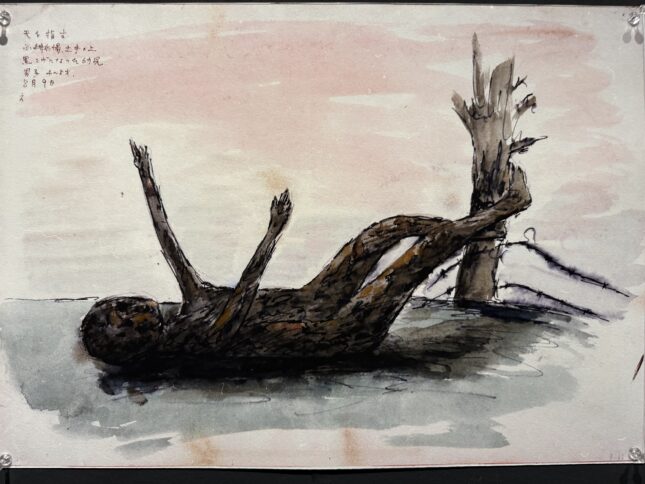
Masato Yamashita
To appreciate is to support.
To support is to donate.
Support JB Reports by becoming a sustaining Patron with a recurring or a spontaneous donation.
Marcel Duchamp
The exhibition’s scope extends even further back, beginning with early 20th-century discoveries about the atom’s structure. This theoretical perspective is fascinating, suggesting that artists like Marcel Duchamp and Wassily Kandinsky were captivated by the notion of an atom filled with empty space and the existence of a microscopic world beyond human sight. For Duchamp, this fascination resulted in a form of generalized nihilism, where he experimented, for instance, with the concept of playing with air, in his famous piece “Air de Paris”, composed of an empty glass bulb.
Wassily Kandinsky
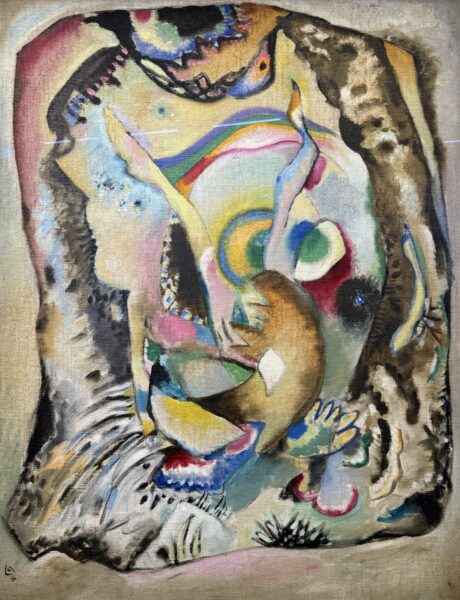
Wassily Kandinsky
For Kandinsky, the exhibition suggests that these discoveries lead him directly to abstraction.
Before and after the bomb
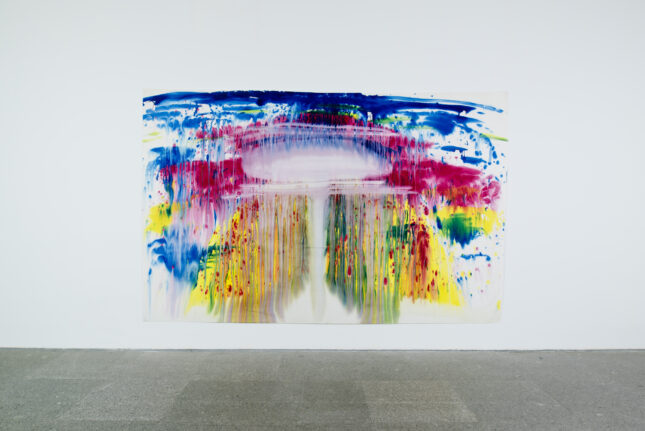
Miriam Cahn
“There is a before and after the bomb,” stresses Julia Garimorth. Jackson Pollock’s dripping technique, developed in 1947, can be viewed as a choreographed expression of moving electrons, while Lucio Fontana’s monochromatic canvases, slashed to create his Concetto spaziale series from 1959 onward, are interpreted as representations of the world’s annihilation.
Bruce Conner
The exhibition also includes an essential masterpiece: a hypnotic 36-minute film by Bruce Conner titled Crossroads, made in 1976, documenting a 1946 nuclear test on Bikini Atoll from 27 unique perspectives. Conner transforms the explosive mushroom cloud— the symbol of devastation—into a haunting visual study, compelling viewers to confront both its destructive power and unsettling beauty.
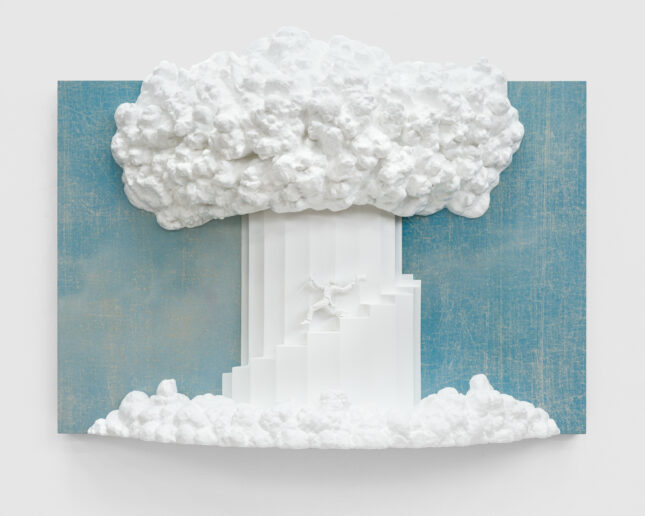
Jim Shaw
Until February 9 at the Museum of Modern Art, Paris. https://www.mam.paris.fr/
Support independent news on art.
Your contribution : Make a monthly commitment to support JB Reports or a one off contribution as and when you feel like it. Choose the option that suits you best.
Need to cancel a recurring donation? Please go here.
The donation is considered to be a subscription for a fee set by the donor and for a duration also set by the donor.


